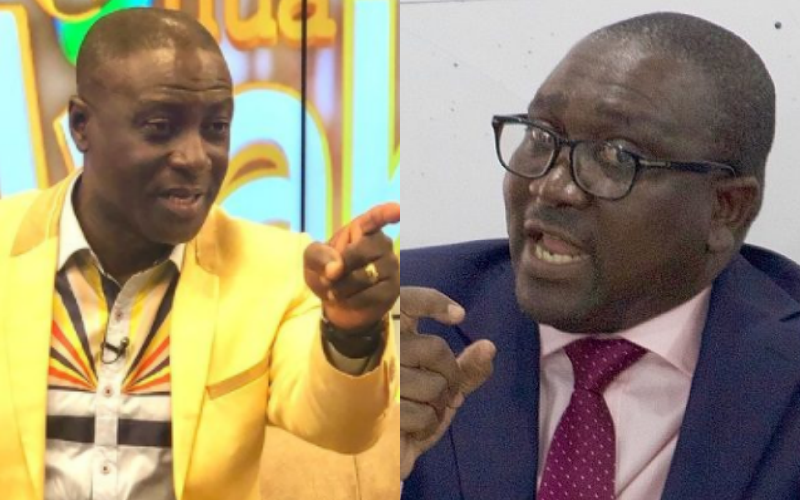The National Media Commission (NMC) has initiated a process to revoke the broadcasting licenses of Onua FM and Onua TV, citing a pattern of unprofessional conduct and irresponsible broadcasting, particularly by presenter Captain Smart. NMC Executive Secretary George Sarpong has publicly criticized the stations’ management for failing to address these recurring issues, emphasizing their ultimate responsibility for the content aired. He argues that the stations’ operators have the power to recruit, train, and regulate their presenters, and their failure to do so poses a significant threat to public safety. The NMC’s action underscores a growing concern about the potential for inflammatory media rhetoric to incite violence and endanger lives.
The controversy stems from recent comments made by Captain Smart, who allegedly encouraged illegal miners to invade the AngloGold Ashanti (AGA) mine in Obuasi. This incitement reportedly contributed to a violent confrontation that resulted in the deaths of nine illegal miners. The NMC views this incident as a direct consequence of the unchecked and irresponsible broadcasting practices prevalent on Onua FM and Onua TV, and has taken decisive action to prevent further harm. Sarpong’s statements highlight the gravity of the situation, describing the content aired by these stations as “extremely dangerous” and emphasizing the need for greater accountability within the Ghanaian media landscape.
The NMC’s decision to file a notice of revocation with the National Communications Authority (NCA) represents a significant escalation in their efforts to address the issue. This action demonstrates the NMC’s commitment to upholding journalistic standards and ensuring responsible media conduct. While the ultimate outcome of the revocation process remains to be seen, the NMC’s intervention sends a clear message to media organizations about the importance of adhering to professional ethics and avoiding inflammatory rhetoric that could incite violence. The case also highlights the complex relationship between media freedom and public safety, prompting a broader discussion about the role and responsibilities of media outlets in society.
The incident at the AGA mine and the subsequent action by the NMC raise crucial questions about the ethical boundaries of media reporting, particularly in sensitive contexts such as illegal mining. Critics argue that Captain Smart’s comments crossed the line from reporting to incitement, directly contributing to the tragic loss of life. The NMC’s decision to pursue license revocation suggests that they concur with this assessment, viewing the stations’ conduct as a serious breach of their broadcasting responsibilities. The ongoing debate centers on the balance between freedom of expression and the need to prevent harm, a delicate balance that requires careful consideration from both media organizations and regulatory bodies.
The NMC’s move also highlights the importance of effective internal regulation within media organizations. Sarpong’s criticism of Onua FM and Onua TV’s management underscores the need for media outlets to establish robust internal mechanisms to monitor and address potential breaches of professional ethics. This includes providing adequate training to presenters and journalists, implementing clear editorial guidelines, and taking prompt action to address instances of misconduct. The failure of Onua FM and Onua TV to effectively manage their content underscores the vulnerability of the media landscape to irresponsible reporting and the potential for such reporting to have devastating consequences.
The case of Onua FM and Onua TV serves as a stark reminder of the power of media and the critical importance of responsible broadcasting. The tragic events at the AGA mine demonstrate how inflammatory rhetoric can incite violence and endanger lives. The NMC’s action signals a determination to hold media organizations accountable for their content and to ensure that the principles of journalistic ethics are upheld. The ongoing debate surrounding this case will likely shape the future of media regulation in Ghana and beyond, prompting a deeper reflection on the responsibilities of media outlets in fostering a safe and informed society.


